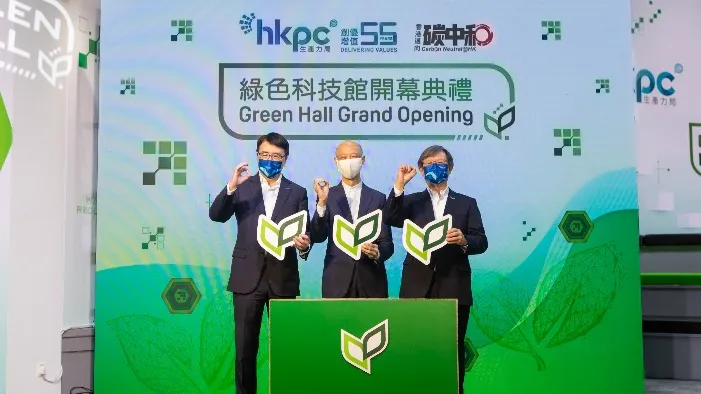
HKPC launches Green Hall
This will help Hong Kong achieve its carbon neutrality goal before 2050.
The Hong Kong Productivity Council (HKPC) on Monday launched its new Green Hall that will facilitate collaboration amongst government, industry leaders, and the academic and research sectors to adopt green technologies by the industry and the public.
In a statement, the HKPC said the Green Hall, located at its office aims to be a “Super-Connector” platform for green technologies where stakeholders gather and exchange ideas and expertise on the latest innovations and practices. This will also help Hong Kong achieve carbon neutrality before 2050.
HKPC Chairman Willy Lin said they hope the Green Hall will inspire industry leaders to translate more innovative green technologies and ideas into practical use for the community and boost industry-wide adoption of these technologies that can be applied in their daily lives such as clothing, food, housing, and transportation.
“Our goal is to support and promote the invention and adoption of more cutting-edge GreenTech to create a green, low-carbon future for Hong Kong,” Lin said.
Wong Kam-sing, Secretary for the Environment of the Hong Kong Special Administrative Region, said this will help Hong Kong address the challenges in transitioning to a low-carbon and green economy and support its decarbonisation, reduce air pollutants, minimise waste, and achieve the goal of carbon neutrality before 2050.
The Green Hall hosts a range of innovative green technologies research and developments (R&D) and applications by the council, its automative platforms and applications systems R&D Centre, and several partners and exhibitors.
A licensing agreement signing ceremony was also held at the Green Hall opening for the “Food Waste Total Recycling System,” jointly developed by HKPC and AEL (International Holdings) Limited.
The system, supported by the Public Sector Trial Scheme under the Innovation and Technology Fund of the Innovation and Technology Commission, simplifies food waste collection, wherein food waste can be sorted and pretreated at source into slurry for easy transportation and conversion into renewable energy, and animal feeds, amongst others.








![Cross Domain [Manu + SBR + ABF + ABR + FMCG + HBR + ]](https://cmg-qa.s3.ap-southeast-1.amazonaws.com/s3fs-public/styles/exclusive_featured_article/public/2025-01/earth-3537401_1920_4.jpg.webp?itok=WaRpTJwE)









 Advertise
Advertise


